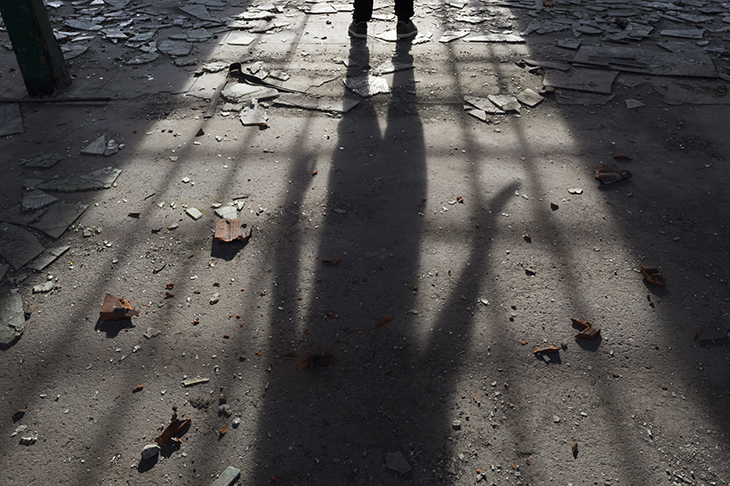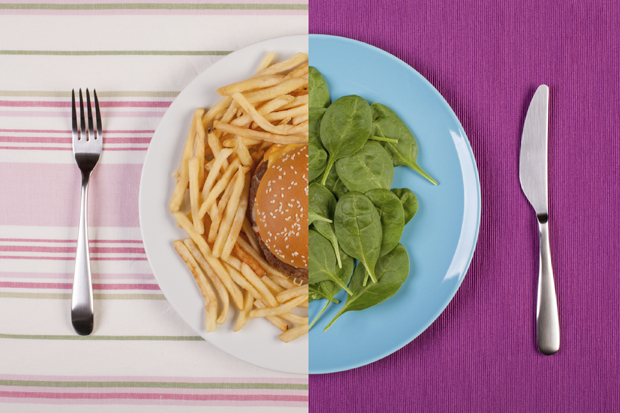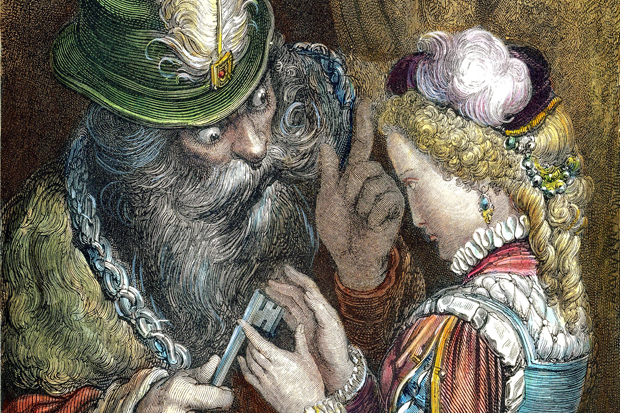It was somehow inevitable that shortly after Met Police Commissioner Cressida Dick announced a fall in violent crime, there would be an absolute horror-show of death across the capital. The ‘weekend of bloodshed’ began on Friday 14 June with the murder of 18-year-old Cheyon Evans, knifed by teens in Wandsworth. A few minutes later Eniola Aluko was shot dead in Plumstead, then three men were hospitalised in Clapham, another dead of knife wounds in Tower Hamlets, and another an hour later in Enfield. In Stratford the next day, by the Westfield shopping centre, more than 100 young men attacked and injured a handful of police officers. A section 60 order (which gives police the right to search for weapons) was issued and a socking great blade, of the sort you might use to gut a moose, was discovered and confiscated.
It’s sad but not surprising. What did alarm me, though, was the way that weekend was reported the following Monday. ‘Fears have been raised that the increased use of stop and search powers will cause disorder,’ said the Times. ‘There are concerns that as the school summer approaches, stop and search will lead to new clashes.’ I read this a few times, blinking like a frog. Four dead men in morgues, any number hospitalised with stab wounds. There are five people attacked with a knife every day in London, and the worry is that the police are doing too much to prevent it?
That Sunday afternoon, two days after poor Cheyon and Eniola met their ends, Labour councillor Mete Coban tweeted his reaction: ‘Just came across four police officers at Stratford station searching two young black boys for no reason. When I asked them why are you searching them, one of them told me “I have to stop these people getting stabbed.” This cannot be our response to knife crime. Disgusted.’
Disgusted? It’s disgusting that the police are trying to stop the stabbings? Well I’m disgusted too. Does Mete think section 60 orders are a more significant problem than gangland stabbings? Does he think stop and search is somehow a root cause of the knife crime problem? I think perhaps he does. Cheyon and Eniola: dead because of stop and search. That Stratford boy with a hunting knife: he just felt so disproportionately targeted by the police that he had to carry a serrated six-inch blade.
School’s out in a few weeks and so far it looks like we’re gearing up for another bloody summer hols. We’ve just got to put a sock in all the posturing over stop and search — it’s self-serving and outdated.
Almost everyone who gets hot under the collar about police searches mentions Glasgow as an example of the way a city can transform without a heavy-handed police response. A decade ago Glasgow was ‘the murder capital of Europe’, they say. Today knife crime has fallen by 70 per cent, because they treated the problem as a public health issue, training and supporting young people: laying on youth centres, jobs, debt management. Except, as the former deputy mayor Munira Mirza explained very clearly in this magazine last year, that’s just not an accurate picture of events. Yes, Scotland is a success story, but no, it’s not because it abandoned stop and search. Quite the reverse.
When Scotland launched its Violence Reduction Unit in 2005, it involved all manner of early intervention schemes, but alongside them, stop and search increased dramatically and the sentence for carrying a knife more than doubled, from two years to five. By 2010, Scotland’s stop and search rate was more than four times that of England — and it worked.
As it happens, just before the ‘weekend of bloodshed’, the Scottish government released an extensive study of its own operation — analysing more than 1,000 police case files over a decade — and discovered that it was when stop and search was at its most intense that serious assault and attempted murder began to fall. And what began in Glasgow has had a miraculous effect on the whole west of Scotland.
Of course, giving the police more power is not the only answer. How could it be, given the causes of all the stabbings are so toxic and so various: families with no fathers, estates dominated by gangs, fear, drugs, exclusions, the wrong cuts made to the wrong local services.
Yet if it’s clear that stop and search isn’t the whole answer, it’s just as clear that it has to be part of any sensible answer.
What the Mete Cobans of this world need to understand is that it would be much, much easier for the poor police not to frisk kids. One in five officers, it’s said, suffers from PTSD. It would be much easier for Sadiq Khan to drop the whole tough-cop approach altogether and cave in to his natural allies on the liberal-left.
But that would be to abandon both the kids and the police. It would be a tacit accusation that the Met is racist, when that’s just not true any more, and the evidence is clear if you’ve the will to examine it.
At the end of last year, I had coffee with an ex-copper who’d left the Met because it was too worried about appearing racist. He’d loved his job, he said, but it was impossible to do it properly when appearances were more important than catching criminals. He gave me an example: one day he followed a boy he thought looked suspicious into a notorious estate and found, in a stairwell, a cache of machetes. He brought them back to his senior officer, expecting praise, but he’d received instead a warning: why did you follow the boy? On what grounds? Don’t follow people without reasonable grounds. That’s racist.
Its implacable opponents think stop and search is fundamentally marginalising. Not as marginalising, I wouldn’t have thought, as just being given up on — left to hack each other to bits and bleed out in the street.
Got something to add? Join the discussion and comment below.
Get 10 issues for just $10
Subscribe to The Spectator Australia today for the next 10 magazine issues, plus full online access, for just $10.
You might disagree with half of it, but you’ll enjoy reading all of it. Try your first month for free, then just $2 a week for the remainder of your first year.















Comments
Don't miss out
Join the conversation with other Spectator Australia readers. Subscribe to leave a comment.
SUBSCRIBEAlready a subscriber? Log in